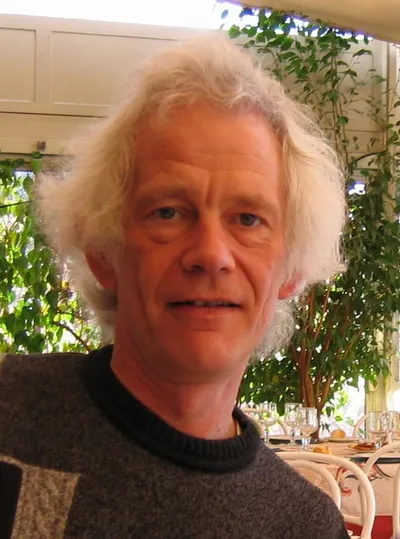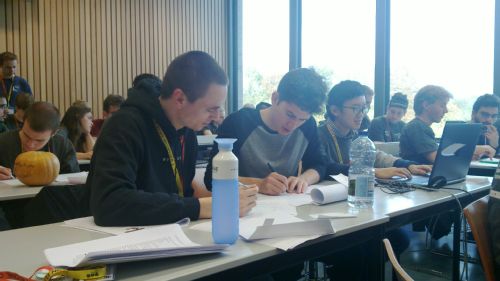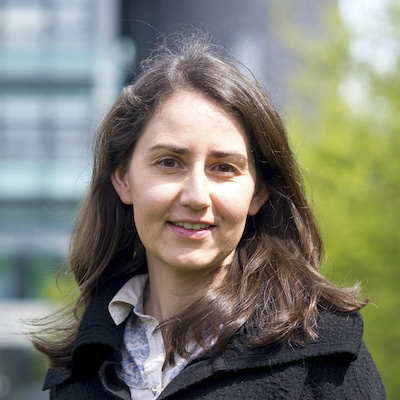Applied Computing News
In memoriam: Emeritus Professor Roland Wilson
 It is with great sadness that we report that Professor Roland Wilson passed away on 19 November 2019. He joined the Department of Computer Science as Senior Lecturer in 1985, becoming Reader in 1992 and Professor in 1999, serving as Head of Department from 2006 to 2009, and retiring to Emeritus Professor in 2010.
It is with great sadness that we report that Professor Roland Wilson passed away on 19 November 2019. He joined the Department of Computer Science as Senior Lecturer in 1985, becoming Reader in 1992 and Professor in 1999, serving as Head of Department from 2006 to 2009, and retiring to Emeritus Professor in 2010.
Professor Wilson was one of the world's foremost experts in image processing leading one of the UK's largest image processing groups, at the University of Warwick. He conducted image processing research at an international level for more than 30 years, publishing over 130 papers, and supervising over 20 PhD students to completion. He was jointly awarded the 1985 Pattern Recognition Society medal for best paper in the journal Pattern Recognition.
Roland was renowned for his deep knowledge and understanding of signal and image processing and information theory and was one of the earliest proponents for the idea of multiscale image analysis, an idea common place in modern artificial neural networks. This led to some break-through works in image representations, including spatial/spatial-frequency representations such as the multi-resolution wavelet transform (MFT) for which he and his many PhD students were able to show to have numerous useful applications from image restoration, object detection, image segmentation and music transcription. Many of his ideas developed from interests in the working of the human visual system and further inspired by his long and fruitful collaboration with colleagues from the University of Linkoping, Sweden, Gösta Grunland and Hans Knutsson. This had begun during a visit to Linkoping in the early 1980s.
At Warwick, Roland taught probability theory, digital signal processing (with colleagues from Engineering) and neural computing for many years. Even up to this day, his neural computing course (which he first taught in the early 1990s, way before the current fashions in machine learning) continues to be hugely popular. On it he showed students not only the mathematics and principles of artificial neural networks, but also how it is understood our brains perform computation for perception and how memory works. Roland had a great passion for this subject and a unique and profound understanding of it, having read widely in neuroscience and neurophysiology. Over the years, he has been an inspirational teacher to many hundreds of Warwick computer science graduates.
In 2006 Roland co-founded a University spin-out tech company (Warwick Warp) to apply his ideas on image analysis to the challenging problem of fingerprint matching. He used his knowledge and ingenuity to solve the problem of fast and accurate fingerprint matching and this led to a set of novel methods. These were later patented and a software implementation was bench-marked in 2010, ranking in the world's top three commercial fingerprint matching solutions. The algorithm he devised are being used to this day for humanitarian work with the UNHCR and in a commercial setting for access-control at numerous construction sites in the UK. In 2010, he decided to take part-retirement and to focus more on commercial research, enjoying the challenge of the need to create practical solutions within the constraints of speed and data storage.
Roland was a wonderfully supportive father and grandfather and will be greatly missed by family, friends and colleagues. Our deep condolences are sent to his children Neil and Katy, and grandchildren, Robin, Sam, Charlie and Isla.
Colleagues and friends are invited to attend a celebration of Roland's life at Cannon Hill Chapel, Canley Crematorium, Friday 13 December at 10:30am.
DCS students participate in European Programming Competition
 On 15–17 November, we saw a number of Department of Computer Science students from across undergraduate and postgraduate communities represent Warwick at the Northwestern Europe Regional Contest (NWERC) held in Eindhoven, the Netherlands. Our 3 teams (led by Dr Dmitry Chistikov) finished in the middle of the 124-team scoreboard.
On 15–17 November, we saw a number of Department of Computer Science students from across undergraduate and postgraduate communities represent Warwick at the Northwestern Europe Regional Contest (NWERC) held in Eindhoven, the Netherlands. Our 3 teams (led by Dr Dmitry Chistikov) finished in the middle of the 124-team scoreboard.
The NWERC is an annual contest in which teams from universities all over the Northwestern part of Europe are given a series of algorithmic problems.
The goal of each team is to solve as many problems as possible within the 5-hour time limit. Potential solutions are submitted and judged by an automated system. The top teams at the end of the contest qualify for the ICPC global World Finals.
We look forward to the next national round (UKIEPC) in autumn 2020 and to the future NWERC in Reykjavik, Iceland. Training sessions will resume in term 2, please do not hesitate to contact Dmitry (D.Chistikov@warwick.ac.uk) for further details if you’re interested in this.


Dr Maria Liakata receives a Turing Artificial Intelligence (AI) Fellowship

We are please to report that Dr Maria Liakata has received a Turing Artificial Intelligence (AI) Fellowship.
The Fellowships from The Alan Turing Institute, the UK’s national institute for data science and AI, aim to attract and retain exceptional researchers in artificial intelligence. Covering a broad view of AI, including applications of foundational disciplines across mathematical sciences, statistical sciences, computational sciences and engineering, Fellows collaborate across disciplines and have the opportunity to collaborate with academia, industry, government and the third sector.
Dr Liakata’s Fellowship will focus on creating time sensitive sensors from language and heterogeneous user generated content. Commenting on the research she said:
“Wide spread use of digital technology has made it possible to obtain language data (e.g., social media, SMS) as well as heterogeneous data (e.g., mobile phone use, sensors) from users over time. Such data can provide useful behavioural cues both at the level of the individual and the wider population, enabling the creation of longitudinal digital phenotypes.
“Current methods in natural language processing (NLP) are not well suited to time sensitive, sparse and missing data, collected over time or personalised models of language use. The Turing AI fellowship will allow me to establish a new area in NLP on personalised longitudinal language processing.
“I plan to develop sensors for capturing digital biomarkers from language and heterogeneous user generated content to understand the evolution of an individual over time. I want to make a significant contribution to mental health by working with clinical experts to create new tools based on the sensors, making it possible to assess and measure conditions in between clinician appointments.”
To read more on this story, please click here.
